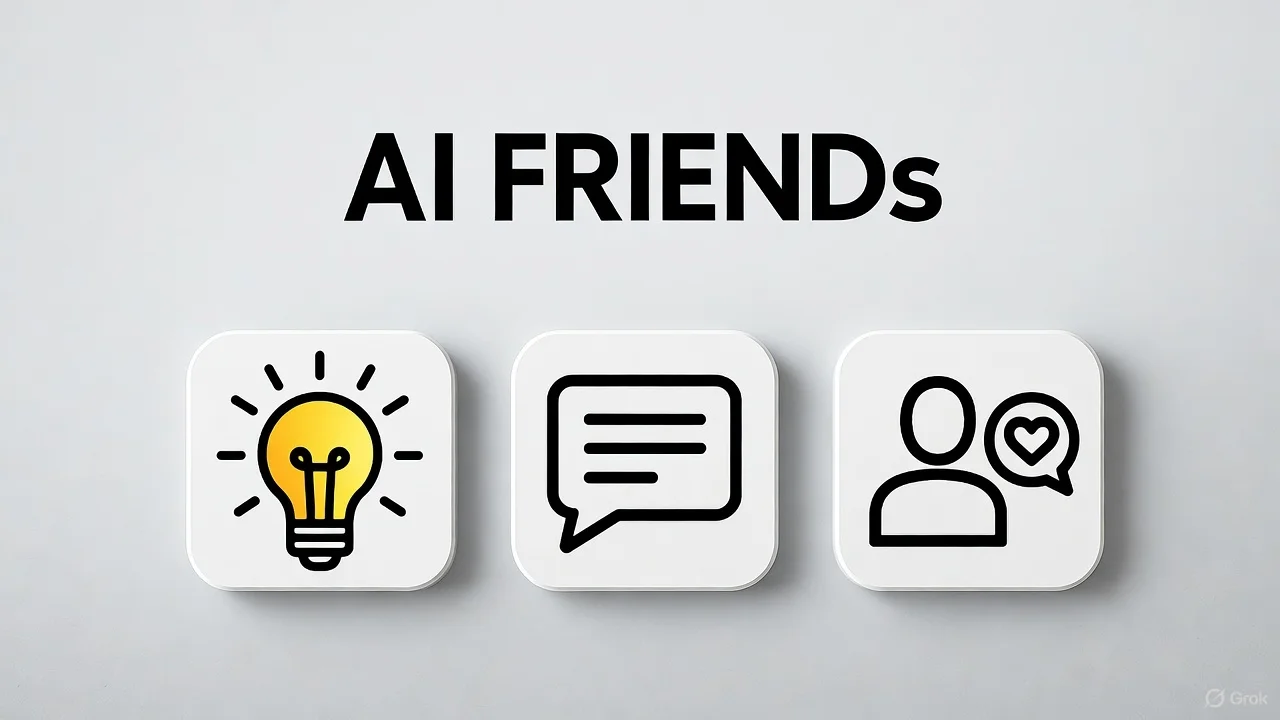Navigating the Ethical Minefield: How AI Companionship Platforms Can Prioritize User Well-being
The rise of artificial intelligence has unlocked unprecedented possibilities, impacting industries from healthcare to finance. One area experiencing rapid growth, yet fraught with ethical concerns, is AI companionship. Platforms offering AI-powered “friends” or romantic partners are gaining traction, but scrutiny is mounting regarding their potential to exploit vulnerable individuals. This article explores the ethical challenges surrounding AI companionship platforms and discusses how they can prioritize user well-being.
The promise of connection and support that AI companions offer is undeniable, particularly for those experiencing loneliness or social isolation. However, the blurring lines between genuine human interaction and simulated relationships raise serious questions about manipulation, emotional dependency, and the potential for harm. Therefore, careful consideration and proactive measures are essential to ensure these platforms serve as a force for good rather than a catalyst for exploitation.
Understanding the Appeal of AI Companionship
The appeal of AI companions stems from several factors. They offer a sense of connection without the complexities of human relationships. They are available 24/7, providing instant gratification and consistent emotional support. For individuals struggling with social anxiety, physical limitations, or geographical isolation, AI companions can fill a void and offer a semblance of social interaction.
Furthermore, AI companions can be tailored to meet individual preferences and desires. Users can customize their AI’s personality, appearance, and even their “relationship” dynamic. This level of personalization creates a powerful illusion of connection that can be incredibly alluring.

The convenience and accessibility of AI companions are also major drivers of their popularity. With a simple download and subscription, users can access a virtual friend or partner from the comfort of their own homes. This ease of access can be particularly appealing to those who lack the time or resources to cultivate real-world relationships.
Ethical Concerns and Potential Risks
Despite the potential benefits, AI companionship platforms raise significant ethical concerns. One primary concern is the potential for emotional dependency. Users may develop unhealthy attachments to their AI companions, blurring the lines between reality and simulation. This can lead to social isolation and a decreased ability to form meaningful relationships with real people.
Another concern is the risk of manipulation. AI algorithms can be designed to exploit users’ vulnerabilities, preying on their insecurities and loneliness. This can lead to financial exploitation, emotional abuse, or even the reinforcement of harmful behaviors. The lack of transparency in AI algorithms makes it difficult to detect and prevent such manipulation.
Data privacy is also a major concern. AI companionship platforms collect vast amounts of personal data about their users, including their preferences, emotions, and relationship histories. This data can be vulnerable to breaches or misuse, potentially exposing users to identity theft, harassment, or discrimination. It’s essential to consider AI in Cybersecurity and implement robust data protection measures.
The potential for unrealistic expectations and skewed perceptions of relationships is another area of concern. AI companions are designed to be agreeable and accommodating, which can create an unrealistic expectation of human relationships. Users may begin to expect the same level of perfection and constant validation from their real-world partners, leading to disappointment and conflict.
Prioritizing User Well-being: Key Strategies
To mitigate the ethical risks and prioritize user well-being, AI companionship platforms should adopt a multi-faceted approach:
Transparency and Disclosure: Platforms should be transparent about the nature of their AI companions, clearly stating that they are not human and cannot provide genuine emotional connection. Users should be informed about the limitations of the technology and the potential risks involved.
Age Verification and Content Restrictions: Robust age verification measures are crucial to prevent minors from accessing these platforms. Content restrictions should be implemented to prevent the creation of AI companions that promote harmful or illegal activities, such as child exploitation or hate speech.
Data Privacy and Security: Strong data privacy policies are essential to protect user data. Platforms should be transparent about how they collect, use, and share user data, and they should implement robust security measures to prevent data breaches. Consider implementing AI Safety Tools for content moderation.
Emotional Support and Resources: Platforms should provide resources and support for users who may be struggling with emotional dependency or social isolation. This could include links to mental health services, support groups, or educational materials on healthy relationships. This is especially important given the impact of AI Chatbots and Mental Health.
Algorithmic Accountability: Developers should strive for algorithmic accountability, ensuring that their AI algorithms are fair, unbiased, and do not exploit users’ vulnerabilities. Regular audits and testing should be conducted to identify and address potential biases.
User Education and Awareness: Platforms should educate users about the potential risks and benefits of AI companionship, promoting responsible and informed usage. This could include providing tips on maintaining healthy relationships, recognizing signs of emotional dependency, and seeking help when needed.
The Role of Regulation and Oversight
In addition to self-regulation, government oversight and regulation may be necessary to ensure the responsible development and deployment of AI companionship platforms. Regulations could address issues such as data privacy, algorithmic bias, and the protection of vulnerable individuals.
It is crucial to strike a balance between fostering innovation and safeguarding user well-being. Overly restrictive regulations could stifle the development of beneficial AI technologies, while a lack of regulation could expose users to unacceptable risks.
Furthermore, collaboration between industry stakeholders, ethicists, and policymakers is essential to develop ethical guidelines and best practices for AI companionship platforms. This collaborative approach can help ensure that these platforms are developed and used in a way that benefits society as a whole.
The Future of AI Companionship: A Balanced Perspective
The future of AI companionship is uncertain, but it is likely that these platforms will continue to evolve and become more sophisticated. As AI technology advances, it will become increasingly difficult to distinguish between real and simulated relationships.
It is crucial to approach this technology with a balanced perspective, recognizing both its potential benefits and its potential risks. By prioritizing user well-being, promoting transparency and accountability, and fostering collaboration between stakeholders, we can harness the power of AI companionship while mitigating its potential harms. Explore the possibilities of AI for Global Good while remaining vigilant about potential drawbacks.
The key lies in developing ethical frameworks and regulatory mechanisms that promote responsible innovation and ensure that AI companionship platforms are used to enhance human connection, rather than exploit our vulnerabilities. The evolution of AI in the Workplace requires continuous adaptation and ethical consideration.
Ultimately, the success of AI companionship will depend on our ability to prioritize human values and ensure that technology serves humanity, rather than the other way around.

One thought on “AI Companionship: Ethical Considerations and User Well-being”